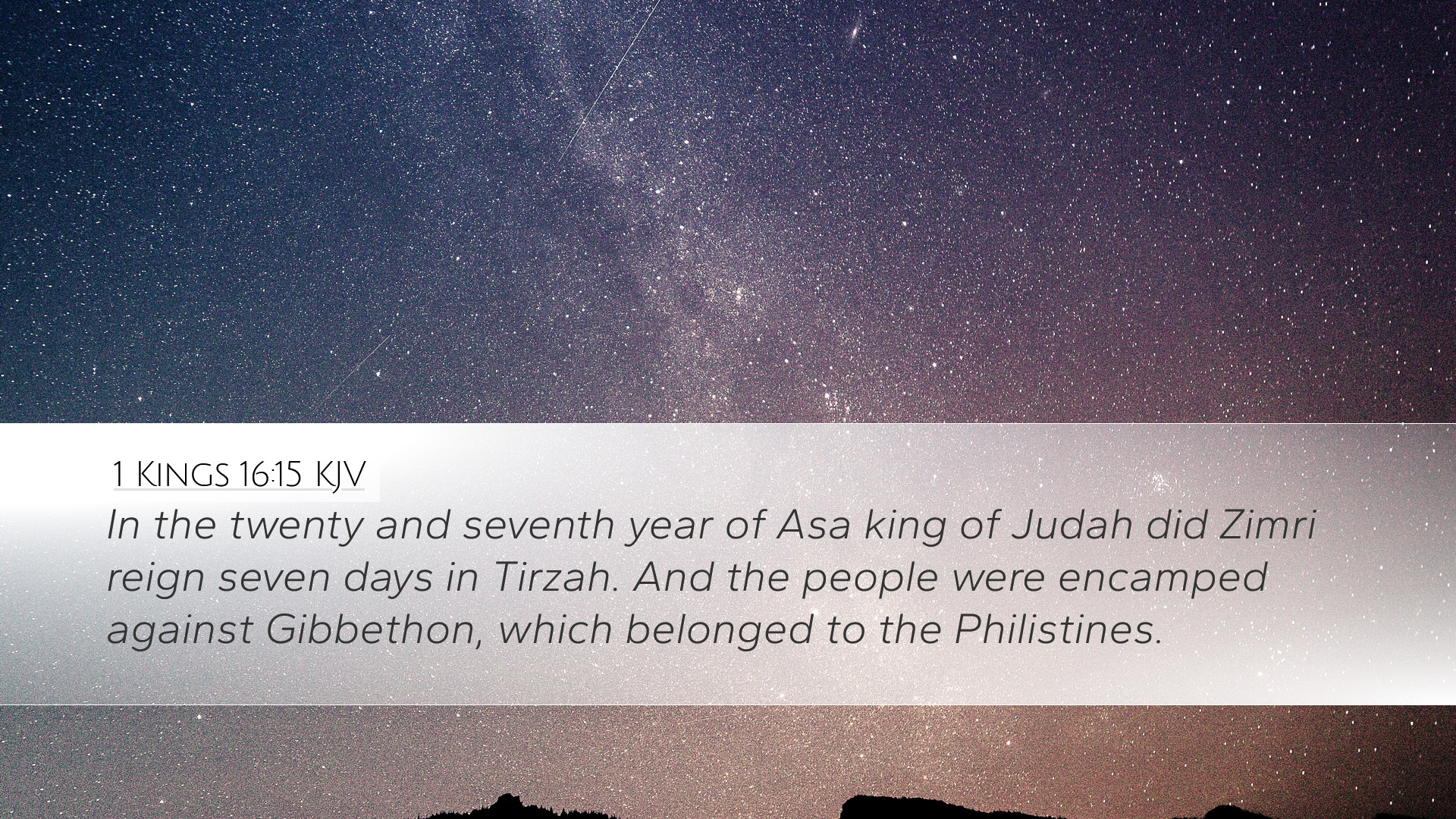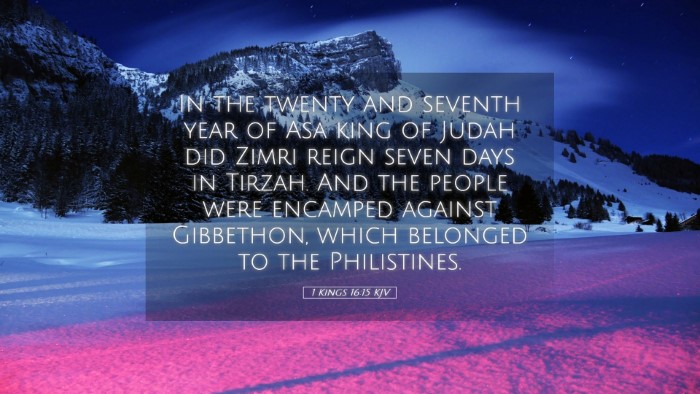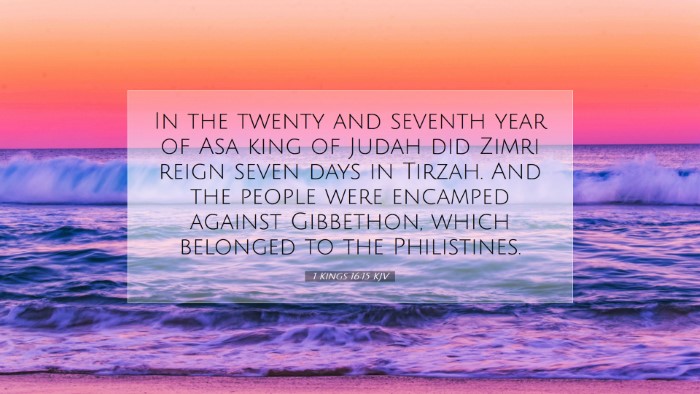Commentary on 1 Kings 16:15
Verse Citation: 1 Kings 16:15 - "In the twenty-seventh year of Asa king of Judah, Zimri reigned seven days in Tirzah: and the people were encamped against Gibbethon, which belonged to the Philistines."
Context and Background
This verse falls within a critical period in the history of Israel, marked by political instability and moral decline. Zimri's brief reign highlights the turmoil of the northern kingdom of Israel. After the division of the kingdom, the northern tribes frequently experienced coups and rapid successions of kings, often driven by assassination and internal strife.
Political Significance
Matthew Henry notes that Zimri's ascension, however brief, represents a moment of significant political upheaval. His reign of merely seven days is a testament to the chaos that characterized Israel’s monarchy during this period. This was a time when the throne was increasingly contested, and the people's loyalty was fragile. Zimri's rise came while the army was engaged in conflict with the Philistines at Gibbethon, indicating that the internal discord preceded external threats.
Theological Reflections
Albert Barnes offers insights into the theological implications of Zimri’s short rule. Barnes suggests that the brevity of Zimri’s reign serves as a stark reminder of God's sovereignty over the nations. Each uprising among Israel's kings illustrates a divine judgment upon the people for their iniquity. The instability reflects not just human ambition but also God’s providential hand directing the course of events, fulfilling prophetic warnings regarding the consequences of Israel's rebellion against Him.
Zimri's Character and Actions
Adam Clarke provides an analysis of Zimri's character, emphasizing his dramatic and ruthless rise to power. Zimri was not originally of royal descent; rather, he was a commander of half the chariots, which indicates a military background rather than political lineage. His coup involved the assassination of King Elah, reflecting a culture where violence and treachery were predominant in political affairs. Clarke posits that such acts were symptomatic of a deeper moral decay in Israel, which can be traced back to the earlier monarchy’s failure to adhere to God's commands.
Cultural and Historical Implications
The fornication of Israel with idolatry during this period cannot be overstated. Zimri’s brief rule is situated in a landscape profoundly affected by the worship of Baal and Asherah, as emphasized throughout the earlier chapters of Kings. The societal norms had shifted dramatically, often leading to the wrongful elevation of military might over divine adherence. The invaders, such as those at Gibbethon, were not only physical enemies but also symbolic of the spiritual and moral enemies that plagued Israel.
Lessons for Leaders and Believers
- Beware of Corruption: The story of Zimri serves as a cautionary tale about the corrupting influence of power. Leaders are reminded that their ascendancy should not come through sinful means.
- Recognize God’s Sovereignty: The rapid turnover of kings illustrates not only the chaotic human condition but also the guiding hand of God. Believers are encouraged to trust in God's ultimate plan, regardless of immediate circumstances.
- Examine Personal Integrity: Zimri’s actions prompt a reflection on the moral integrity with which leaders should conduct themselves. It calls for a lifestyle rooted in righteousness, aligning actions with God's will.
Conclusion
1 Kings 16:15 serves as a critical verse encapsulating the themes of political turmoil, divine sovereignty, and moral failure. The insights from Matthew Henry, Albert Barnes, and Adam Clarke converge to create a rich tapestry of understanding regarding Zimri’s short-lived reign. In the light of such historical narrative, both pastors and theologians can glean powerful lessons applicable to contemporary leadership, reminding themselves and their congregations of the enduring truth: righteousness exalts a nation, but sin is a reproach to any people (Proverbs 14:34).


